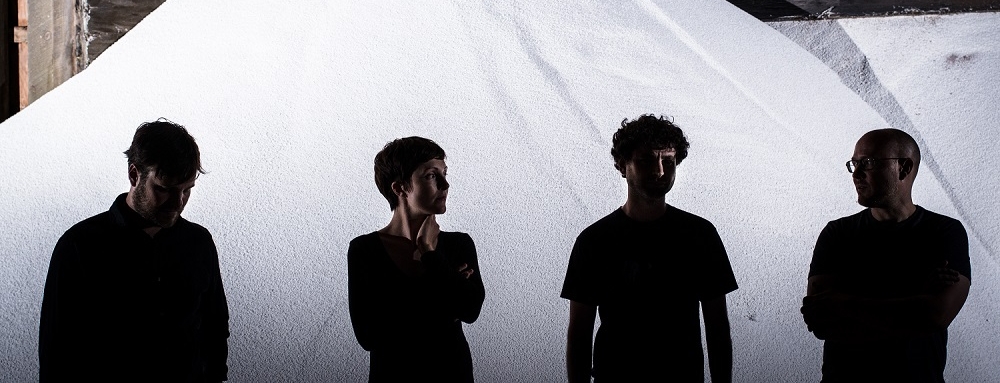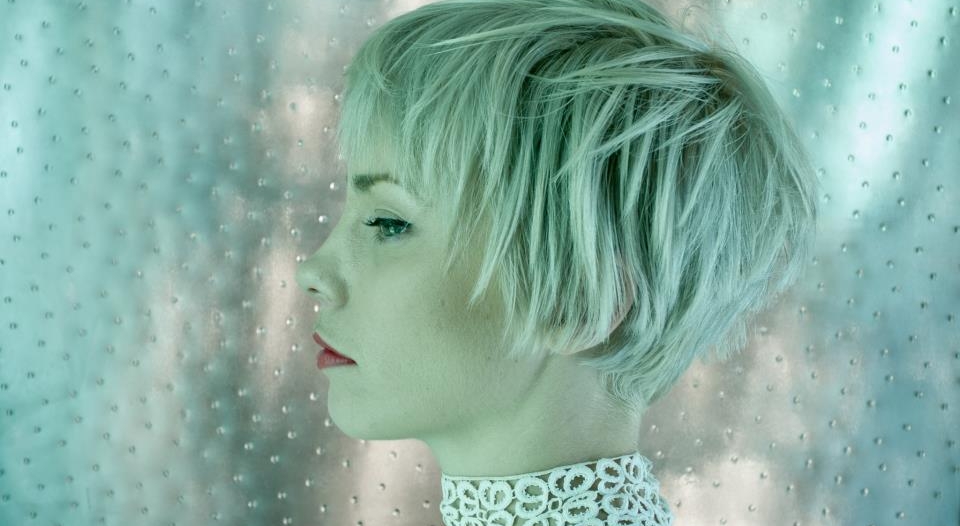“I’m actually glad you mention it, that band name question,” says bassist/backing vocalist Chris Bierden. “It gets asked a lot and for us it’s the least significant element of the band. To us, we’re always thinking of it in terms of the band members and the music. I don’t ever really think of any previously imbued meaning that it might have had in the weekend it took to come up with the name.
“Ultimately, for me the title isn’t the meaning. Any band you could think of, when I hear the title I don’t think what that name might mean. I think of the music that defines them, I think of the people. I don’t think of brands, and getting bogged down in the title is kind of meaningless. You try and come up with an interesting and engaging answer that is more exciting than, ‘That’s just what we called it.’ We’re much more interested in talking about process, the actual creation of songs, which is what we’re doing all the time. It’s a much more interesting thing to talk about.”
It’s true, and after all, band names do come with an intrinsic marketability that has little to do with the music (with the exception of something like 5 Seconds of Summer, which means very little and sounds worse). But this is clearly something on Bierden’s mind as he elaborates.
“The interesting thing about the name of this band is that it has the word police embedded in it, but it wasn’t until this third record that there was any kind of slant to talking about police power, so it’s kind of a weird intersection where I feel like the name has transformed a little bit with the material we’ve since generated. We’re definitely coming at it from a different direction than the previous two records. Hopefully you grow as a human as you grow as a musician.”
It is a fine sentiment, and yet to a certain extent, growth sits at the root of a lot of the band’s anxieties. Not about their own creativity or longevity – on that front, Poliça seem more secure than ever. Instead, there’s pessimism about the shape of the coming world, echoed in lead singer Channy Leaneagh’s remarks that the future might not exactly be a rosy place.
“I certainly don’t want to speak on Channy’s behalf, but we have lots of these conversation in the van. It’s definitely not something we shy away from in our personal lives. It’s hard to be optimistic. I feel that the forces that are in play right now are potentially looming larger than they ever have. With money and politics or climate change, it does feel like something is culminating, which seems tied to the rapid proliferation of the rise of technology as well.
“More information is being disseminated, but what that gets filtered through, it’s hard to not feel like it’s all a little bit menacing. A lot of what Channy draws her lyrical inspiration from is kind of processing these things, and you hope that the music itself might be the healing mechanism. In singing about something very dark, I think we’re all hoping to find a more euphoric experience. If you’re processing really complex social issues and ideas, the music itself should kind of be to the left of it all. That’s my favourite thing about music. You can take a really sad song, and in belting it out it can become pure joy.”
BY ADAM NORRIS

